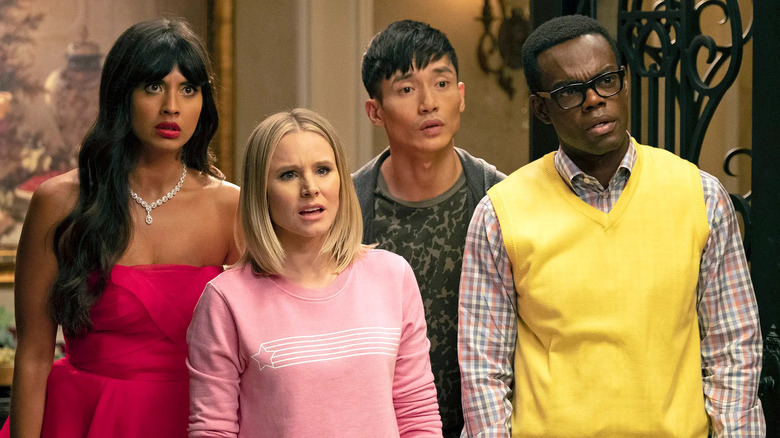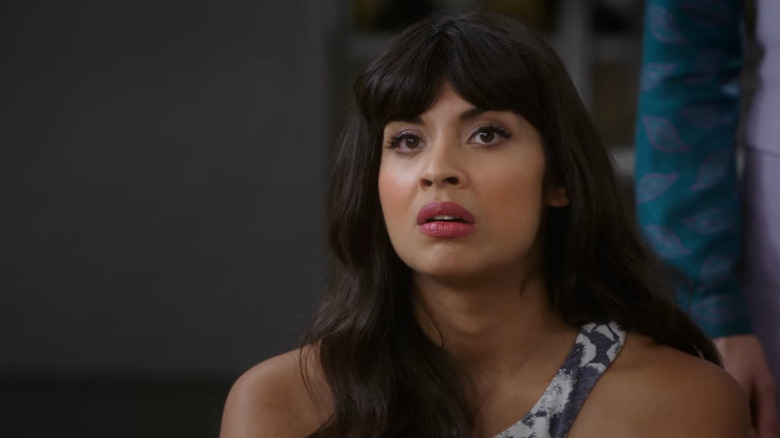How Michael Schur's Coffee Routine Led To The Idea For The Good Place
"The Good Place" is one of the most unique sitcoms of all time, in part because it's barely a sitcom. It's centered around a focused, serialized storyline that ends on its own terms in the fourth season. Creator Michael Schur ("Parks and Recreation," "The Office") chose not to let the show go on any longer, even though no one would've complained if it did. "We don't want to tread water just because the water is so warm and pleasant," he told Indie Wire.
When it came to what inspired the beloved show, Schur points to something he found himself doing on his old coffee routine. The creator explained:
"I caught myself doing something odd at a Starbucks near my house where I would go in and order a medium coffee. It was $1.73. I would pay in cash, and then I would throw the 27 cents into the tip jar, as many people do ... But one day I realized that I didn't just do that. I waited until the barista had turned around to see me do it, meaning that I craved some kind of moral credit or something for such a pathetic tip."
Schur describes this behavior of his as "super lame." The fact that this was the basis for a subplot in a "Seinfeld" episode was encouraging to him though, because it made him realize he wasn't alone in his lame behavior. "This is a thing that many people have experienced," he explained. This is part of what made him interested in pinpointing, as he says, "these little weird things that we all do and asking the question of, 'Why do we do them?'"
Exploring corrupt motives
The clearest example of Schur's coffee story ending up on the show is with the character arc of Tahani (Jameela Jamil), who initially has no trouble believing she'd end up in the Good Place due to all the money she raised for worthy causes. But in the season 1 finale, "Michael's Gambit," she realizes that none of that mattered because her motives were corrupt. "I didn't care about helping the people I raised the money for," she admits. "I just wanted to prove my parents wrong, stick it to my sister, get fame and attention. My only real goal was to snog Ryan Gosling at the Met Ball, which I did." And so she accepts the reality that she's been assigned to the Bad Place.
This idea becomes a major plot point throughout the show outside of Tahani, as Eleanor (Kristen Bell) has her attempts to be a better person thwarted by the fact that she's only becoming better in an attempt to save herself from eternal torture. In the final season, the gang has to test their theory that people can become better on test subjects who don't realize they're being tested, because explaining the stakes to said test subjects would invalidate the results.
As "The Good Place" argues though, even good deeds done for the wrong reasons can make a person better. As Eleanor finds herself instinctually drawn to doing the right thing after spending time with Chidi, she realizes that, somewhere along the way, being good turned from a survival tactic to something more genuine. Maybe it's bad to only put money in the tip jar for the credit it gives you, but as long as you've got a habit of doing good things, you might eventually reach a point where you're not concerned about the credit at all. That may sound like an optimistic take on the situation, but one of the best things about "The Good Place" is that when it comes to people's capacity to improve, it's one of the most optimistic shows on TV.

